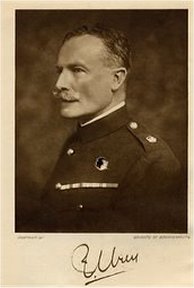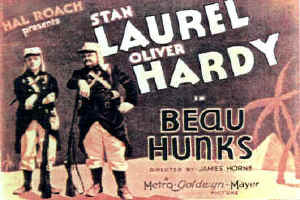
Sir Henry Rider Haggard was an English writer of adventure fiction romances set in exotic locations, predominantly Africa, and a pioneer of the lost world literary genre. He was also involved in land reform throughout the British Empire. His stories, situated at the lighter end of Victorian literature and including the eighteen Allan Quatermain stories, continue to be popular and influential.

Francis Van Wyck Mason was an American historian and novelist. He had a long and prolific career as a writer spanning 50 years and including 78 published novels, many of which were well-received best sellers.

Beau Geste is an adventure novel by British writer P. C. Wren, which details the adventures of three English brothers who enlist separately in the French Foreign Legion following the theft of a valuable jewel from the country house of a relative. Published in 1924, the novel is set in the period before World War I. It has been adapted for the screen several times.

As a literary genre, the chivalric romance is a type of prose and verse narrative that was popular in the noble courts of high medieval and early modern Europe. They were fantastic stories about marvel-filled adventures, often of a chivalric knight-errant portrayed as having heroic qualities, who goes on a quest. It developed further from the epics as time went on; in particular, "the emphasis on love and courtly manners distinguishes it from the chanson de geste and other kinds of epic, in which masculine military heroism predominates."

Percival Christopher Wren was an English writer, mostly of adventure fiction. He is remembered best for Beau Geste, a much-filmed book of 1924, involving the French Foreign Legion in North Africa. This was one of 33 novels and short story collections that he wrote, mostly dealing with colonial soldiering in Africa.
John Waters was an American film director, second unit director and, initially, an assistant director. His career began in the early days of silent film and culminated in two consecutive Academy Award nominations in the newly instituted category of Best Assistant Director. He won on his second nomination, for MGM's Viva Villa!, and received a certificate of merit; the certificate was replaced with an Oscar statuette in 1965.

Herbert Brenon was an Irish-born U.S. film director, actor and screenwriter during the era of silent films through 1940.

Beau Hunks is a 1931 American Pre-Code Laurel and Hardy film, directed by James W. Horne.
This is a list of bestselling novels in the United States in the 1920s, as determined by Publishers Weekly. The list features the most popular novels of each year from 1920 through 1929.

Beau Geste is a 1926 American silent drama film directed by Herbert Brenon and based on the 1924 novel Beau Geste by P. C. Wren. Ronald Colman stars as the title character.

Beau Geste is a 1939 American adventure film starring Gary Cooper, Ray Milland, Robert Preston, Brian Donlevy, and Susan Hayward. Directed and produced by William A. Wellman, the screenplay was adapted by Robert Carson, based on the 1924 novel of the same title by P. C. Wren. The music score was by Alfred Newman and cinematography was by Theodor Sparkuhl and Archie Stout.

Beau Geste is a 1966 adventure film based on the 1924 novel by P. C. Wren filmed by Universal Pictures in Technicolor and Techniscope near Yuma, Arizona and directed by Douglas Heyes. This is the least faithful of the various film adaptations of the original novel. In this version, there are only two brothers, rather than three, and there are no sequences showing Beau's life prior to his joining the Legion.

Beau Geste is a BBC television serial, based on the 1924 novel by P. C. Wren. The series aired on BBC1 from 31 October to 19 December 1982 and starred Benedict Taylor, Anthony Calf and Jonathon Morris as the three brothers.
North and South is a 1980s trilogy of best-selling novels by John Jakes which take place before, during, and after the American Civil War. The saga tells the story of the enduring friendship between Orry Main of South Carolina and George Hazard of Pennsylvania, who become best friends while attending the United States Military Academy at West Point but later find themselves and their families on opposite sides of the war. The slave-owning Mains are rural gentleman planters while the big-city Hazards live by manufacturing and industry, their differences reflecting the real divisions between North and South which ultimately led to war.
The non-fiction novel is a literary genre that, broadly speaking, depicts non-fictional elements, such as real historical figures and actual events, woven together with fictitious conversations and uses the storytelling techniques of fiction. The non-fiction novel is an otherwise loosely defined and flexible genre. The genre is sometimes referred to using the slang term "faction", a portmanteau of the words fact and fiction.

John Russell was an American writer and screenwriter.

Beau Ideal is a 1931 American pre-Code adventure film directed by Herbert Brenon and released by RKO Radio Pictures. The film was based on the 1927 adventure novel Beau Ideal by P. C. Wren, the third novel in a series of five novels based around the same characters. Brenon had directed the first in the series, Beau Geste, which was a very successful silent film in 1926. The screenplay was adapted from Wren's novel by Paul Schofield, who had also written the screenplay for the 1926 Beau Geste, with contributions from Elizabeth Meehan and Marie Halvey.

Beau Sabreur is a 1928 American silent romantic adventure film directed by John Waters and starring Gary Cooper and Evelyn Brent. Due to the public apathy towards silent films, a sound version was also prepared. While the sound version has no audible dialog, it was released with a synchronized musical score with sound effects using both the sound-on-disc and sound-on-film process. Based on the 1926 novel Beau Sabreur by P. C. Wren, who also wrote the 1924 novel Beau Geste. Produced by Paramount Famous Lasky Corporation and distributed by Paramount Pictures, only a trailer exists of this film today. The released feature version is a lost film.

Beau Ideal is a 1927 novel by P. C. Wren. It was the second sequel to his 1924 novel Beau Geste.
Wages of Virtue is a 1924 American silent drama film directed by Allan Dwan and written by Forrest Halsey and Percival Christopher Wren. The film stars Gloria Swanson, Ben Lyon, Norman Trevor, Ivan Linow, Armand Cortes, Adrienne D'Ambricourt, and Paul Panzer. The film was released on November 10, 1924, by Paramount Pictures. It was shot at the Astoria Studios in New York.















